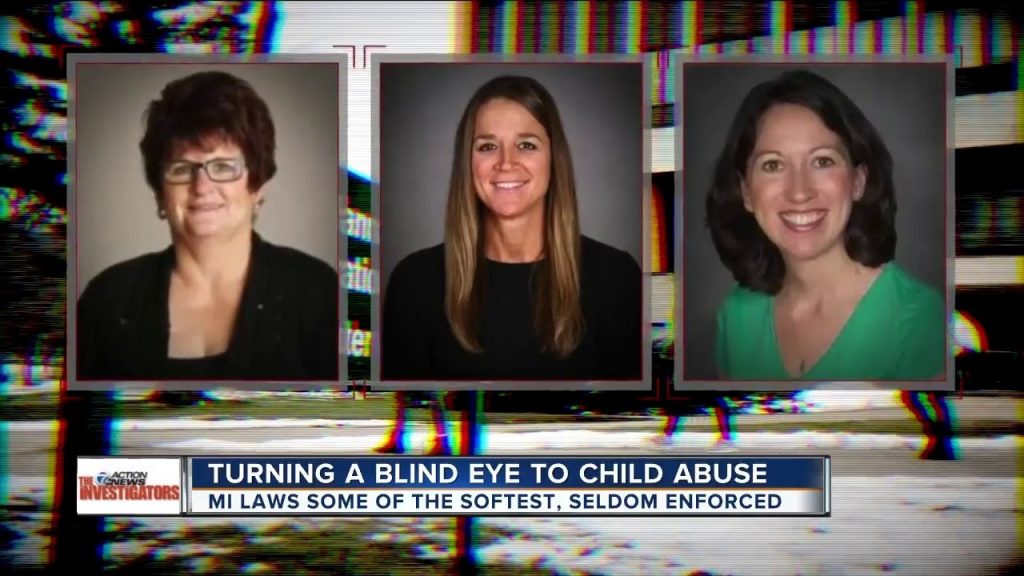Mandated Reporters and Their Crucial Role in Protecting Children: Understanding Reporting Obligations

Mandated Reporters and the Importance of Reporting Suspected Abuse to DCF
Mandated Reporters have a vital legal obligation to report any suspected child abuse or neglect to the Department of Children and Families (DCF). While this responsibility might seem straightforward, many cases of suspected abuse go unreported, sometimes with serious consequences. One notable example involved a school superintendent and a school supervisor who failed to report suspected abuse, despite their clear roles as mandated reporters.
These professionals, entrusted with the safety and well-being of children, neglected their duty to notify DCF about a concerning incident involving a student and a school psychologist. This failure not only endangered the child but also violated Massachusetts law, leading to legal charges against both the superintendent and supervisor. Their experience highlights the critical importance of understanding the DCF investigation process and the responsibilities of mandated reporters.
Mandated Reporters: Legal Obligations and Real-Life Consequences of Failing to Report
Mandated Reporters are individuals who, due to their professional roles, are legally required to report any reasonable suspicion of child abuse or neglect. In the case of the superintendent and school supervisor, the investigation began after a student reported an inappropriate conversation with the school psychologist about sexual topics. The student’s mother contacted the superintendent, who promised an investigation and stated that DCF would be contacted. However, DCF was not notified until the mother followed up a second time.
Although the police determined that the psychologist’s conversation was not criminal, the failure of the mandated reporters to immediately notify DCF was a clear violation of the law. This case underscores that the obligation to report is not dependent on whether the reporter believes the abuse is criminal or proven — the duty is to report any reasonable suspicion.
Mandated Reporters: What You Need to Know About Your Duty to Report to DCF
Mandated Reporters have an affirmative duty to file a report with DCF whenever they have reason to believe that a child may be abused or neglected. It is important to understand that mandated reporters are not tasked with investigating or proving abuse themselves. Their role is simply to report suspicions so that DCF can conduct a thorough investigation.
This means that even if a mandated reporter doubts the truth of the allegations, they must still report. The law is designed this way to ensure that all potential cases of abuse are evaluated by trained professionals who can determine the facts and take appropriate action.
Mandated Reporters: Who Must Report and Why Reporting Matters
Each state, including Massachusetts, has specific laws identifying who qualifies as a mandated reporter. These typically include professionals who work closely with children, such as teachers, school administrators, healthcare providers, social workers, and law enforcement officers.
The purpose of these laws is twofold: to protect children from harm and to provide DCF with accurate and timely information to conduct effective investigations. When mandated reporters fulfill their duties, they become critical advocates for vulnerable children who may not be able to speak up for themselves.
Mandated Reporters: The Moral and Legal Imperative to Protect Children

Beyond legal requirements, mandated reporters have a moral obligation to stand up for children’s safety. Children rely on adults in positions of trust to protect them from harm. When mandated reporters fail to report suspected abuse, children can remain in dangerous situations, and abuse may continue unchecked.
By reporting suspected abuse promptly, mandated reporters can help break the cycle of harm and ensure children receive the protection and support they need. Reporting is not about accusing or punishing parents or caregivers prematurely; it is about safeguarding children and allowing professionals to investigate and intervene if necessary.
Mandated Reporters: How to Recognize Signs of Abuse and When to Report
Recognizing signs of abuse or neglect is a key part of a mandated reporter’s responsibility. Signs may include unexplained injuries, changes in behavior, fearfulness, poor hygiene, or signs of malnutrition. Emotional abuse and neglect can be harder to detect but are equally damaging.
If you, as a mandated reporter, observe or suspect abuse, it is essential to report your concerns to DCF immediately. Waiting or hesitating can put the child at further risk. Remember, your report is confidential, and you are protected by law from retaliation.
Mandated Reporters: Understanding the DCF Investigation Process After a Report
Once a mandated reporter files a report, DCF initiates an investigation to assess the child’s safety and the validity of the allegations. The investigation may involve interviews with the child, family members, and other relevant parties, as well as home visits and review of medical or school records.
Mandated reporters may be contacted by DCF during the investigation for additional information. It is important to cooperate fully and provide any relevant details you have observed. Your role as a mandated reporter does not end with the initial report; ongoing communication with DCF can be crucial in protecting the child.
Mandated Reporters: Protecting Yourself and Understanding Your Rights During a DCF Investigation
Mandated reporters should also be aware of their rights during a DCF investigation. You have the right to legal representation if you are involved in any legal proceedings related to the report. It is advisable to consult with an experienced attorney who understands DCF cases to ensure your rights and interests are protected.
Additionally, mandated reporters should keep detailed records of any observations, reports made, and communications with DCF. This documentation can be important if questions arise about your report or actions.
If you are a mandated reporter facing questions or concerns about a DCF investigation, or if you need legal assistance, contact Kevin Seaver, an experienced Massachusetts DCF defense lawyer, at (617) 263-2633 or request a consultation online.
If you find yourself involved in a DCF case, it is advisable to seek legal representation from a qualified attorney, such as those at the Law Office of Kevin Seaver, who can advocate for your rights and guide you through the complex DCF investigation process.
Remember, the ultimate goal of DCF is to ensure the safety and well-being of children while supporting families in crisis.
Please note that this article does not create an Attorney-Client relationship and is provided for informational purposes only. Readers should not rely on this information as legal advice and should seek specific counsel based on personal circumstances.





